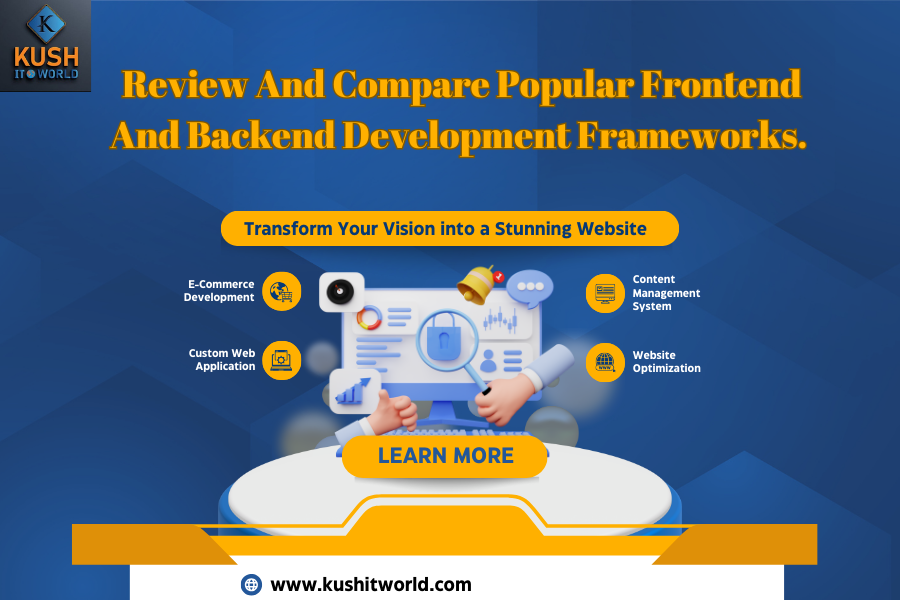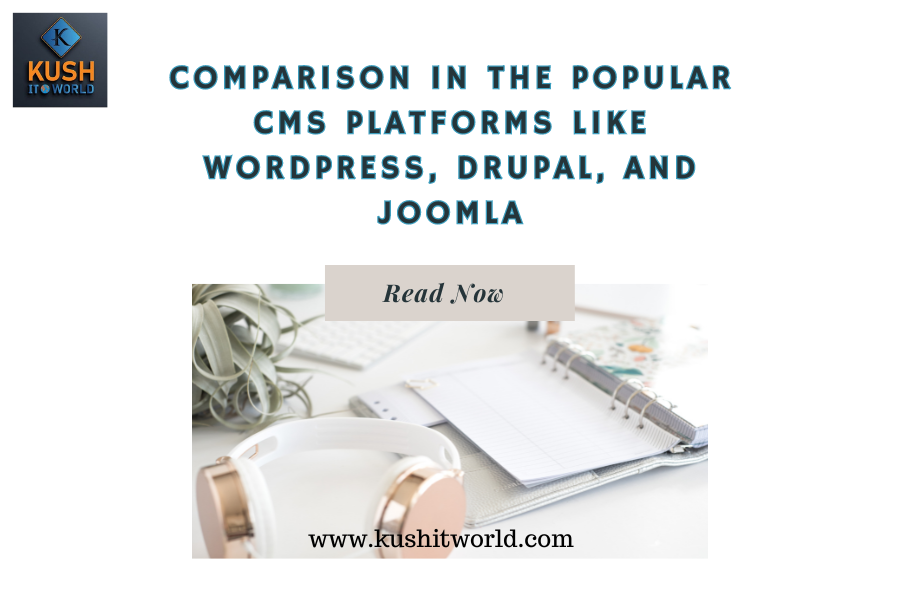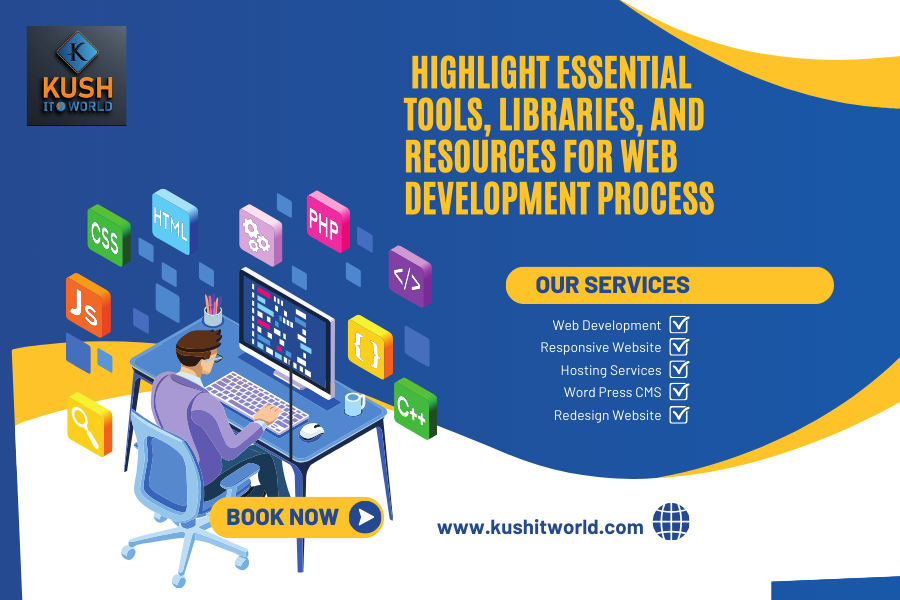Web Development Frameworks: Review and compare popular frontend and backend development frameworks, such as React, Angular, Vue.js, Django, and Ruby on Rails.
Web development frameworks are the building blocks of modern web applications, empowering developers to create robust and feature-rich websites and web applications more efficiently. In this article, we will review and compare popular frontend and backend development frameworks, including React, Angular, Vue.js, Django, and Ruby on Rails, to help you make an informed decision when selecting the right tool for your web development projects.
Frontend Development Frameworks
1. React
Strengths:
Component-Based: React is known for its component-based architecture, making it easy to build and manage complex user interfaces.
Community and Ecosystem: It has a vast and active community, offering a wide range of libraries, components, and tools.
Virtual DOM: The virtual DOM system enhances performance by minimizing unnecessary updates to the actual DOM.
Weaknesses:
Learning Curve: Beginners may find React’s concepts, such as JSX and component lifecycle, challenging to grasp initially.
Boilerplate Code: React requires a lot of setup and configuration to get started, which can be daunting for newcomers.
2. Angular
Strengths:
Full-Fledged Framework: Angular is a complete framework, offering everything you need for building web applications, including a built-in router and state management.
Two-Way Data Binding: It provides robust two-way data binding, which simplifies handling user input and state changes.
TypeScript Support: Angular’s use of TypeScript enforces strong typing and enhances code quality.
Weaknesses:
Complexity: The extensive set of features and concepts in Angular can lead to a steep learning curve.
Performance: Angular applications can be relatively heavy, affecting load times, especially for smaller projects.
3. Vue.js
Strengths:
Progressive Framework: Vue.js is designed to be incrementally adoptable, allowing developers to use as much or as little of the framework as needed.
Simple Syntax: Vue’s simple and intuitive syntax is beginner-friendly and quick to learn.
Performance: Vue.js is known for its lightweight nature and exceptional performance.
Weaknesses:
Smaller Ecosystem: While Vue’s ecosystem is growing, it is not as extensive as React or Angular.
Less Backing: Vue.js has a smaller company behind it compared to Facebook (React) and Google (Angular), which can affect long-term support and development.
Backend Development Frameworks
1. Django
Strengths:
Batteries Included: Django comes with a wide range of built-in features, including an ORM, authentication, and an admin panel.
High Productivity: Django’s “Don’t Repeat Yourself” (DRY) philosophy and robust documentation contribute to high development productivity.
Security: Django has strong built-in security features, making it a reliable choice for applications handling sensitive data.
Weaknesses:
Opinionated: Django’s opinionated nature can be restrictive for developers who prefer more flexibility in their stack.
Learning Curve: Django has a learning curve for beginners, especially when dealing with its ORM and project structure.
2. Ruby on Rails
Strengths:
Convention Over Configuration: Ruby on Rails embraces convention over configuration, which accelerates development by reducing decision-making.
Active Community: Rails has a strong and active developer community, contributing to a wealth of resources and libraries.
Mature: Ruby on Rails has been around for over a decade and is a reliable choice for web application development.
Weaknesses:
Performance: Ruby on Rails may not be the best choice for high-performance or resource-intensive applications.
Strict Conventions: While conventions can be helpful, they can also limit flexibility for those who want more control over their project’s architecture.
Choosing the Right Framework
The choice between React, Angular, Vue.js, Django, and Ruby on Rails depends on various factors, including your project’s requirements, your team’s familiarity, and your personal preferences:
React, Angular, or Vue.js: If you’re working on frontend development, consider your team’s experience and the project’s size and complexity. React offers a vast ecosystem, Angular provides a complete framework, and Vue.js is lightweight and beginner-friendly.
Django or Ruby on Rails: For backend development, consider your project’s requirements and your team’s expertise. Django is known for security and versatility, while Ruby on Rails offers rapid development with convention over configuration.
In conclusion, the best framework for your project will depend on a variety of factors, so carefully evaluate your specific needs and the strengths and weaknesses of each framework before making a decision. Regardless of your choice, these frameworks are valuable tools for building high-quality web applications efficiently.











